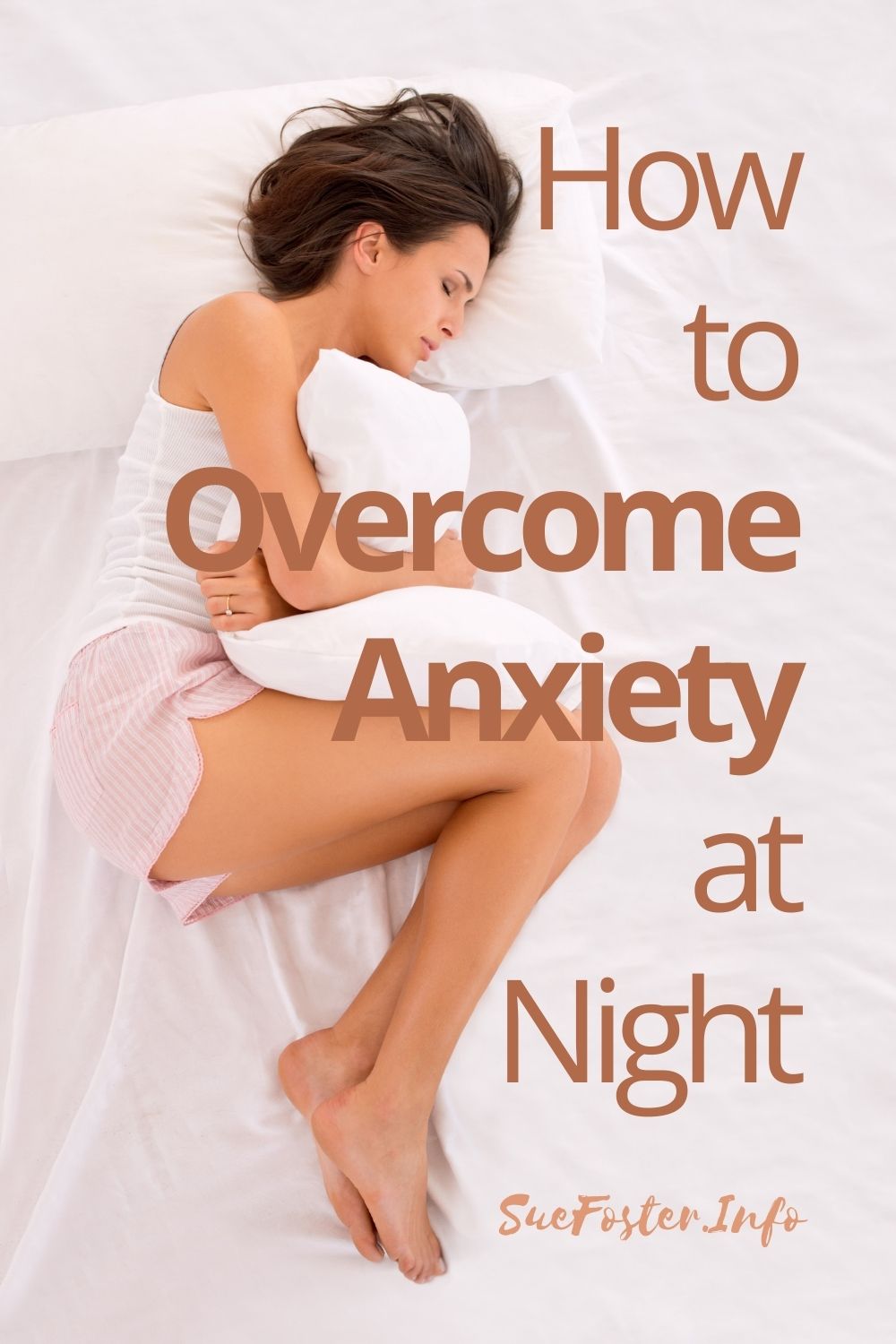When we’re worried about something, it can heavily way on our mind and distract us during the day. At night, it’s a different story. You lay your head down to get some sleep, but some things keep you awake. Your mind has taken this opportunity to obsessively worry, and you can’t fall asleep.
Anxiety is a perfectly normal human emotion, but it can lead to sleep deprivation and further complications. The night time is one of the most common times that anxiety occurs and is heavily linked with a reduction in sleep quality.
Whether you’re worried about something temporary, or you find yourself ruminating on a nightly basis, you can overcome this. There are some steps people can take to address their anxiety and prepare themselves for bed. The last thing you want to do is allow your brain to associate bedtime with worry time.

Set Aside Some Worry Time
One way you can address anxiety at night is by setting aside some time during the day. Long before you go to bed, sit down and think about what’s worrying you. Go through the various scenarios and reassure yourself there’s nothing you can do right now. Sometimes saying out loud ‘thank you, but I am okay’ can reassure your worried brain.
Write down your thoughts in a journal, as this can help your brain feel like action has been taken. If what’s causing you anxiety is things you need to do or deadlines approaching, make a to-do list. If your concerns are more existential, write them in a diary, have a conversation with yourself.
No Worries (Guided Journal): Write. Act. Turn the Page.
Breathe Before Bed
One way you can beat anxiety at night is by following an intentional breathing exercise. This is a form of meditation that you can follow that helps you to let go of any stress and anxiety. There are guided meditations you can follow online or through meditation apps. Alternatively, you can go it alone by focusing on your breaths.
You could follow the 4-7-8 method, this helps me fall asleep! Breathe in for 4 seconds, hold for 7 seconds, and exhale through your mouth for 8 seconds. The entire breath should take 19 seconds to complete. While you’re doing this, any thoughts that come to mind need to be acknowledged and let go of as soon as they arrive. The idea is that you are focusing on your breathing.
This is known as intentional breathing, and by following something like the 4-7-8 method, you’re lowering your heart rate and increasing oxygen in the bloodstream. Some people may experience a level of lightheadedness and find themselves drifting into sleep.
Work Out Early
Exercise is one of the best things we can do for our mental health, and that includes an antidote to anxiety. If you can, get some form of exercise during the day. The earlier, the better. Something like walking, running, swimming, yoga, or weightlifting can have a massive effect on how easy it is to fall asleep.
Exercise helps to tire the body out, which makes it easier to fall asleep when bedtime rolls around. It also helps your mental health, as exercise can lead to increased production of good hormones such as serotonin and dopamine. It’s better to exercise earlier as your body works hard during recovery, which can lead to you staying awake.
Conclusion
Being kept awake at night by rumination and anxiety can lead to other health complications if it isn’t addressed quickly. Sleep deprivation can have a devastating effect on your life, with decreased awareness and a change in your mood. You can end up in a cycle that just gets worse, so when your anxiety at night creeps in, get on top of it as soon as you can.



